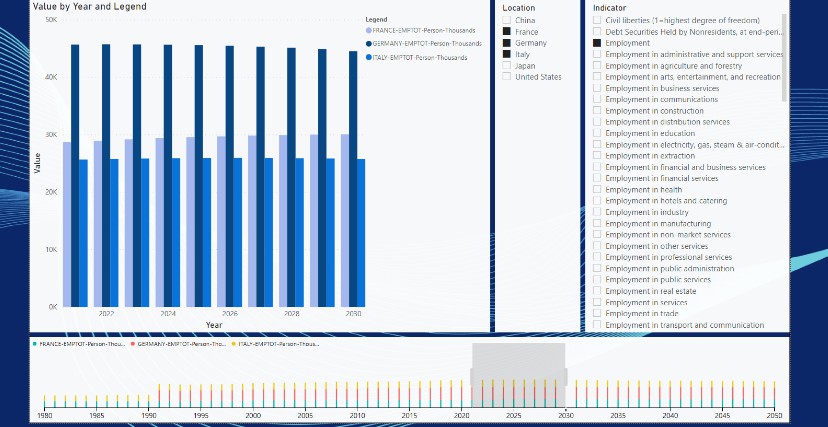airflow-dbt-python
An Airflow operator to call the main function from the dbt-core Python package
Motivation
Airflow running in a managed environment
Although dbt is meant to be installed and used as a CLI, we may not have control of the environment where Airflow is running, disallowing us the option of using dbt as a CLI.
This is exactly what happens when using Amazon's Managed Workflows for Apache Airflow or MWAA: although a list of Python requirements can be passed, the CLI cannot be found in the worker's PATH.
There is a workaround which involves using Airflow's BashOperator and running Python from the command line:
from airflow.operators.bash import BashOperator
BASH_COMMAND = "python -c 'from dbt.main import main; main()' run"
operator = BashOperator(
task_id="dbt_run",
bash_command=BASH_COMMAND,
)
But it can get sloppy when appending all potential arguments a dbt run command (or other subcommand) can take.
As you may expect, airflow-dbt-python abstracts the complexity of handling CLI arguments by defining an operator for each dbt subcommand, and having each operator be defined with attribute for each possible CLI argument.
An alternative to airflow-dbt that works without the dbt CLI
The existing airflow-dbt package, by default, would not work if the dbt CLI is not in PATH, which means it would not be usable in MWAA. There is a workaround via the dbt_bin argument, which can be set to "python -c 'from dbt.main import main; main()' run", in similar fashion as the BashOperator example. Yet this approach is not without its limitations:
airflow-dbtworks by wrapping thedbtCLI, which makes our code dependent on the environment in which it runs.airflow-dbtdoes not support the full range of arguments a command can take. For example,DbtRunOperatordoes not have an attribute forfail_fast.airflow-dbtdoes not return anything after the execution, which no information is available for downstream tasks to pull via XCom. An even if it tried to, since it works by wrapping the CLI, it could only attempt to parse the lines printed bydbtto STDOUT. On the other hand,airflow-dbt-pythonwill try to return the information of adbtresult class, as defined indbt.contracts.results, which opens up possibilities for downstream tasks to condition their execution on the result of adbtcommand.
Avoid installing unnecessary dbt plugins
Finally, airflow-dbt-python does not depend on dbt but on dbt-core. The connectors: dbt-redshift, dbt-postgres, dbt-snowflake, and dbt-bigquery are available as installation extras instead of being bundled up by default, which happens when you attempt to install dbt via python -m pip install dbt.
This allows you to easily control what is installed in your environment. One particular example of when this is extremely useful is in the case of the dbt-snowflake connector, which depends on cryptography. This dependency requires the Rust toolchain to run, and this is not supported in a few distributions (like the one MWAA runs on). Even if that's not the case, airflow-dbt-python results in a lighter installation due to only depending on dbt-core.
Usage
Currently, the following dbt commands are supported:
cleancompiledebugdepslsparserunrun-operationseedsnapshotsource(Not well tested)test
Examples
from datetime import timedelta
from airflow import DAG
from airflow.utils.dates import days_ago
from airflow_dbt_python.operators.dbt import (
DbtRunOperator,
DbtSeedOperator,
DbtTestoperator,
)
args = {
'owner': 'airflow',
}
with DAG(
dag_id='example_dbt_operator',
default_args=args,
schedule_interval='0 0 * * *',
start_date=days_ago(2),
dagrun_timeout=timedelta(minutes=60),
tags=['example', 'example2'],
) as dag:
dbt_test = DbtTestOperator(
task_id="dbt_test",
selector="pre-run-tests",
)
dbt_seed = DbtSeedOperator(
task_id="dbt_seed",
select=["/path/to/first.csv", "/path/to/second.csv"],
full_refresh=True,
)
dbt_run = DbtRunOperator(
task_id="dbt_run",
models=["/path/to/models"],
full_refresh=True,
fail_fast=True,
)
dbt_test >> dbt_seed >> dbt_run
Requirements
airflow-dbt-python is tested in Python 3.7, 3.8, and 3.9, although it could also support older versions.
On the Airflow side, we unit test with versions 1.10.12 and upwards, including the latest version 2 release. Regardless, more testing is planned to ensure compatibility with version 2 of Airflow.
Finally, airflow-dbt-python requires at least dbt version 0.19. Unit tests have verified to pass with version 0.20 after minor changes that should not have major effects anywhere else. Regardless, support for version 0.20 of dbt should be considered experimental.
Installing
From PyPI:
pip install airflow-dbt-python
Any dbt connectors you require may be installed by specifying extras:
pip install airflow-dby-python[snowflake,postgres]
From this repo:
Clone the repo:
git clone https://github.com/tomasfarias/airflow-dbt-python.git
cd airflow-dbt-python
With poetry:
poetry install
Install any extras you need, and only those you need:
poetry install -E postgres -E redshift
Testing
Tests are written using pytest, can be located in test/, and they can be run locally with poetry:
poetry run pytest -vv
License
This project is licensed under the MIT license.





